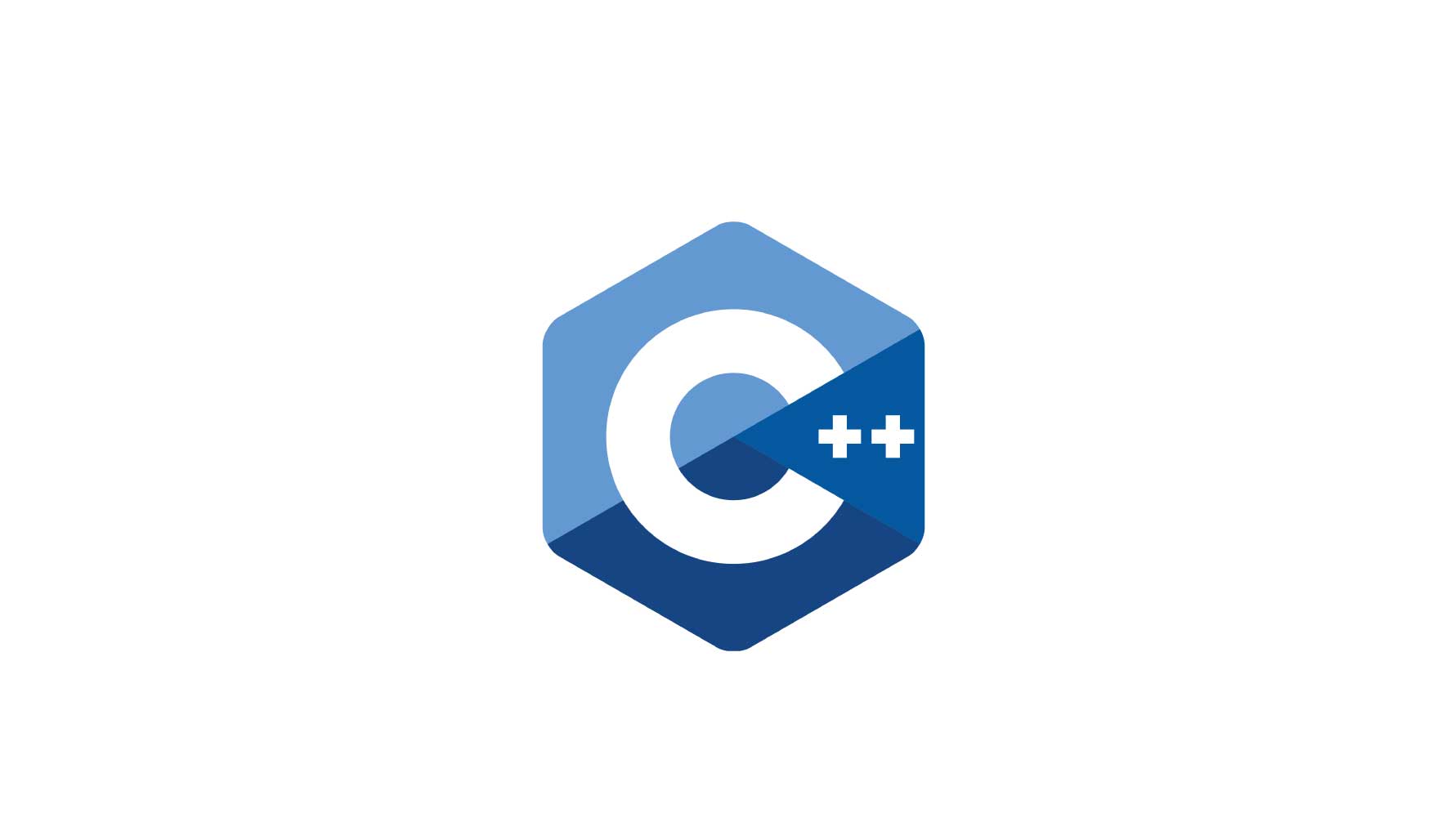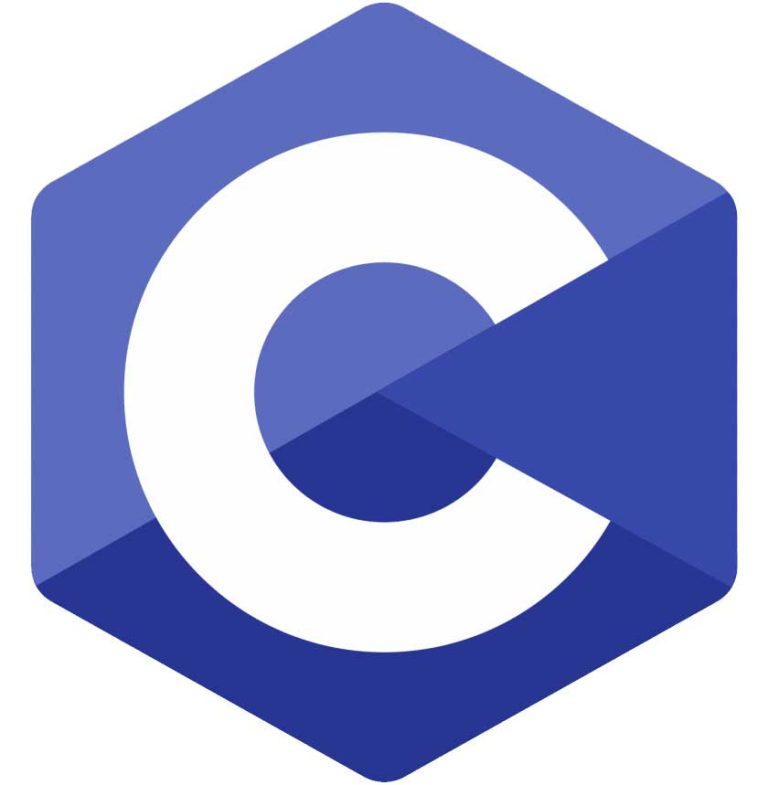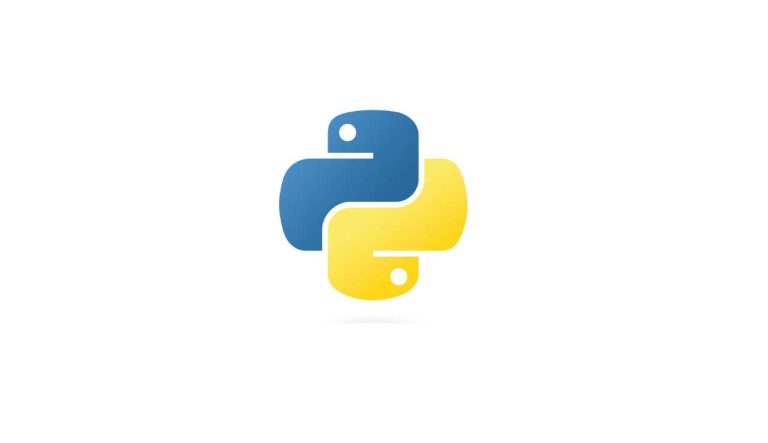C++ Programming Language
A Comprehensive Reference Guide
C++ is a statically-typed, general-purpose programming language known for its flexibility and efficiency. It supports multiple programming paradigms, including procedural, object-oriented, and generic programming, making it highly versatile for a wide range of applications.
History and Development of the C++ Language
C++ was developed by Bjarne Stroustrup at Bell Labs between 1979 and 1983. It started as an extension of the C programming language, initially named “C with Classes”, indicating its expanded support for object-oriented programming. The language was later renamed C++, with the “++” signifying the increment operator in C, representing the evolution of the C language.
Main Features and Strengths of C++
C++ is recognized for its high performance and control over system resources. Some of its key features include:
- Object-Oriented Programming: C++ provides support for object-oriented programming, which includes concepts such as classes, inheritance, and polymorphism.
- Direct Control Over Hardware: C++ allows direct manipulation of hardware resources, granting developers a high degree of control over CPU and memory usage.
- Memory Management: In C++, developers have direct control over memory management. This means they can manually manage the memory lifecycle, leading to efficient use of resources.
- Performance and Efficiency: Due to its low-level capabilities and direct hardware control, C++ is known for its performance and efficiency. This makes it a popular choice for applications where performance is critical, such as game development or operating systems.
- Large Community and Rich Library Support: C++ has a large global community and a rich set of libraries, providing solutions for a wide range of needs – from GUI programming to interacting with databases, making it highly versatile for different kinds of projects.
Why Choose C++ For Your Development Project?
C++ is one of many different languages that you might consider for a development project. Alternatives to C++ include Python, Java, Rust, Go, Swift, and several others. However, there are important reasons why C++ is chosen to be used in a tech stack. We’ll consider those reasons here.
Specific Advantages of C++ Over Other Languages
C++ offers several advantages that make it a compelling choice over other languages. Here are a few:
- Performance: Due to its low-level capabilities, C++ provides a high degree of control over system resources, which can lead to optimized performance.
- Control Over System Hardware: C++ allows for direct manipulation of hardware and memory, making it an excellent choice for system software, game engines, and real-time systems.
- Object-Oriented and Generic Programming: C++ supports both object-oriented and generic programming. This flexibility allows developers to choose the paradigm that best suits their needs for a particular problem.
Examples of Unique Features of C++
Some unique features of C++ include:
- RAII (Resource Acquisition Is Initialization): This is a programming idiom used in C++ where resources are tied to object lifetimes. This makes resource management (like memory or file handlers) more automatic and exception-safe.
- Templates: C++ supports generic programming through templates, which allow developers to write code that handles any type, making it highly reusable.
Situations and Projects Where C++ Excels
C++ is often chosen for projects that require direct control over hardware or memory, or that need to optimize for speed or performance. It’s a go-to language for system software, game development, embedded systems, and real-time systems. Moreover, because of its performance characteristics, it’s also frequently used in sectors like finance for high-frequency trading systems.
Getting Started with C++
If you’re interested in trying out C++, here are some detailed instructions on how to try out the language, including setting up a development environment and writing your first lines of C++ code.
Getting started with C++ involves setting up a development environment on your computer. While the specific steps may vary depending on your operating system, they generally involve the following:
- Installing a C++ Compiler: A compiler is required to convert C++ code into executable programs. Some popular options include GCC (GNU Compiler Collection) for Linux, Clang for macOS, and MSVC (Microsoft Visual C++) for Windows.
- Setting up an Integrated Development Environment (IDE): While not strictly necessary, an IDE can greatly simplify the process of writing, compiling, and debugging C++ code. Some popular options include Visual Studio, CLion, and Code::Blocks.
“Hello, World!” Example in C++
The most basic start to any programming language is writing a program that simply outputs some text.
Here’s a simple C++ program that prints “Hello, World!” to the console:
#include <iostream>
int main() {
std::cout << "Hello, World!" << std::endl;
return 0;
}So, what is happening in this simple “Hello, World!” code block? Here’s a quick overview.
In this code:
#include <iostream>tells the compiler to include the iostream standard library, which allows for input/output operations.int main()is the entry point of the program. Execution begins from this function.std::cout << "Hello, World!" << std::endl;prints “Hello, World!” followed by a newline to the console.return 0;indicates that the program has ended successfully.
C++ Integrated Development Environments (IDEs) and Tools
There are numerous IDEs and tools available to aid in C++ development. These offer features like code highlighting, auto-completion, debugging tools, and more. Some popular options are:
- Visual Studio: A fully-featured IDE from Microsoft. It offers a rich set of tools for developing applications on Windows.
- CLion: A cross-platform IDE from JetBrains. It provides a smart editor, integrated debugger, and supports multiple build systems.
- Eclipse: An open-source IDE that supports multiple languages, including C++. It offers a wide range of tools and plugins.
- Code::Blocks: A free and open-source cross-platform IDE that supports multiple compilers, including GCC, Clang, and Visual C++.
Remember, the best IDE or tool often depends on your specific needs and workflow. Often, the IDE you use will be heavily influenced or determined by your employer and/or co-workers as you work on a team of developers.
Language Basics of C++
To help you get more familiar with the C++ language, we’ll cover some of the basics of how C++ works, including
C++ Syntax
C++ has a syntax similar to the C language, but with additional features for object-oriented and generic programming. A simple C++ program includes a main function where the execution of the program starts.
#include <iostream>
int main() {
std::cout << "Hello, World!";
return 0;
}C++ Data Types and Variables
C++ supports several built-in data types, including:
- Integer types (
int,short,long,long long) - Floating-point types (
float,double) - Character type (
char) - Boolean type (
bool)
Variables are defined with a specific data type, and they can store values of that type.
int myNumber = 5; // Integer
double myFloatNum = 5.99; // Floating point number
char myLetter = 'D'; // Character
bool myBoolean = true; // BooleanC++ Operators and Expressions
C++ includes arithmetic operators (+, -, *, /, %), comparison operators (==, !=, <, >, <=, >=), logical operators (&&, ||, !), and more. Expressions are combinations of variables, literals, operators, and function calls.
C++ Control Structures
- Conditional Statements: C++ supports
if,else if, andelsefor conditional logic, andswitchfor multiple choices based on a single variable.
if (condition) {
// do something
} else if (otherCondition) {
// do something else
} else {
// do a different thing
}- Loops:
for,while, anddo-whileloops are available for repeated execution of code.
for (int i = 0; i < 10; i++) {
// this code will execute 10 times
}C++ Functions and Methods
Functions are blocks of code designed to perform specific tasks. In C++, functions are declared with a name, return type, and any parameters they take.
C++ supports error handling through the mechanism of exceptions. This allows the program to throw an exception when an error occurs, then catch it and continue execution.
try {
// code that might throw an exception
} catch (int e) {
std::cout << "An exception occurred. Exception Nr. " << e << '\n';
}Advanced Concepts in C++
Now that we’ve had a look at some of the fundamentals of the C++ language, we can dig more into some of the more advanced concepts associated with developing software with C++.
Object-Oriented Programming
Object-oriented programming (OOP) is a design paradigm that revolves around the concept of “objects”. These objects are instances of classes, which can include both data (attributes) and functions (methods). C++ is one of the main programming languages that utilize OOP principles, which include:
- Classes and Objects: A class is a blueprint for creating objects. An object is an instance of a class.
class MyClass { // The class
public: // Access specifier
int myNum; // Attribute (int variable)
string myString; // Attribute (string variable)
};
int main() {
MyClass myObj; // Create an object of MyClass
// Access attributes and set values
myObj.myNum = 15;
myObj.myString = "Some text";
// Print attribute values
cout << myObj.myNum << "\n";
cout << myObj.myString;
return 0;
}- Inheritance: Inheritance is the process by which one class takes on the attributes and methods of another. Newly formed classes are called derived classes, and the classes that the derived classes are based on are called base classes.
class Vehicle { // Base class (parent)
public:
string brand = "Ford";
void honk() {
cout << "Tuut, tuut! \n" ;
}
};
class Car: public Vehicle { // Derived class (child)
public:
string model = "Mustang";
};
int main() {
Car myCar;
myCar.honk();
cout << myCar.brand + " " + myCar.model;
return 0;
}- Polymorphism: Polymorphism means “many shapes” in Greek, which in programming is expressed as functions or objects that can take on different forms.
class Animal {
public:
void animalSound() {
cout << "The animal makes a sound \n" ;
}
};
class Pig : public Animal {
public:
void animalSound() {
cout << "The pig says: wee wee \n" ;
}
};
class Dog : public Animal {
public:
void animalSound() {
cout << "The dog says: bow wow \n" ;
}
};- Encapsulation: Encapsulation is the packing of data and functions into a single component. It allows the data to be hidden from outside view and accessed through methods.
class Employee {
private:
int salary;
public:
void setSalary(int s) {
salary = s;
}
int getSalary() {
return salary;
}
};Functional Programming
While C++ is primarily an object-oriented language, it also supports elements of functional programming. This includes functions as first-class objects, lambda expressions, and more.
Concurrency and Parallelism
C++ provides several tools for managing concurrency and parallelism, critical for improving performance in multicore and distributed systems. This includes threads, locks, and condition variables. As of C++11, the language has built-in support for multithreading.
#include <iostream>
#include <thread>
void foo() {
std::cout << "Hello from another thread\n";
}
int main() {
std::thread t(foo);
t.join();
return 0;
}This simple program creates a new thread that executes the foo function, printing a message to the console. The main function waits for this thread to finish execution before continuing.
Note: Concurrency and parallelism are complex topics that require careful consideration of synchronization and data sharing issues. They should be used judiciously and with a good understanding of the underlying principles.
In summary, C++ offers various powerful tools to handle advanced programming concepts. Its hybrid nature, supporting both procedural and object-oriented paradigms, coupled with its direct access to hardware and memory, make it a versatile choice for a wide range of software development projects.
Libraries and Frameworks in C++
As with other languages, C++ has many libraries and frameworks associated with it that make the language easier to use. Instead of having to code everything from scratch, most C++ developers make use of libraries and frameworks that have already been developed and published to be used by the C++ development community.
Popular C++ Libraries and Their Use Cases
- Standard Template Library (STL): Part of C++ Standard Library, STL provides several generic classes and functions, which includes lists, stacks, arrays, etc.
- Boost: Boost is a set of libraries that extends the functionality of C++. It provides support for tasks such as linear algebra, image processing, and unit testing.
- OpenGL: A popular library for rendering 2D and 3D vector graphics.
- OpenCV: A library of programming functions mainly aimed at real-time computer vision.
Popular C++ Frameworks and Their Use Cases
- Qt: A free and open-source widget toolkit for creating graphical user interfaces.
- Microsoft Foundation Class (MFC) Library: A collection of classes that simplifies the process of developing desktop applications for Windows.
- JUCE: An extensive cross-platform C++ application framework for desktop and mobile applications, including VST/AU/RTAS audio plugins.
How to Create and Use Custom Libraries
Creating a library in C++ involves creating a header file (.h) with declarations of functions and variables, and then a source file (.cpp) with the actual definitions. These are then compiled into a static or dynamic library file (.a or .so/.dll), which can be linked to other C++ programs.
Using a library involves including the appropriate header file with #include, and then linking the library file when compiling the program.
Remember, libraries and frameworks are key tools that can help you avoid “reinventing the wheel” by reusing code that has already been written and tested. They can greatly enhance your productivity and the capabilities of your C++ applications.
Best Practices in C++
As with other programming languages, there are some accepted best practices that should be followed to ensure that code is being written as efficiently as possible. We will now take a look at some of those best practices generally accepted for the C++ language.
Code Organization and Structure
- Modularization: Write modular code by dividing large programs into smaller, manageable functions and classes.
- File Organization: Organize related classes and functions into different files and use appropriate naming conventions.
Coding Conventions and Style Guides
- Naming Conventions: Use clear and descriptive names for variables, functions, and classes. Many C++ developers follow the camelCase or PascalCase convention.
- Indentation and Spacing: Use consistent indentation (typically 4 spaces) and spacing to improve readability.
- Comments: Use comments judiciously to explain the purpose and functionality of your code.
Testing and Debugging
- Write Test Cases: Use a testing framework like Google Test to write unit tests that ensure your code behaves as expected.
- Use a Debugger: A debugger can help you step through your code, examine variables, and understand the flow of execution.
Performance Optimization
- Efficient Use of Data Structures and Algorithms: The choice of the right data structure and algorithm can significantly impact the performance of your program.
- Avoid Unnecessary Memory Allocation: Dynamic memory allocation can be costly in C++. Avoid unnecessary allocation and deallocation.
Security Considerations
- Avoid Buffer Overflow: Be careful when dealing with arrays and pointers to avoid buffer overflow, which can lead to security vulnerabilities.
- Handle Exceptions: Use try/catch blocks to handle exceptions and avoid unexpected program behavior.
These are some general best practices to follow while coding in C++. However, the specifics might vary depending on the project or organization you’re working with. Always be ready to adapt to different coding styles and conventions.
How to Learn C++
If you’re interested in learning how to code in C++, we’ll show you how to get started. There are so many resources out there for those who are interested in learning C++ that it can be overwhelming knowing where to start. We’ve organized a list of resources here that have proven over the years to be effective for teaching C++ to thousands of developers.
Recommended Prerequisites for Learning C++
- Basic knowledge of programming concepts such as variables, loops, and functions is beneficial before diving into C++.
- Familiarity with the concepts of Object-Oriented Programming (OOP) can be helpful, as C++ is primarily an OOP language.
Online C++ Tutorials and Courses
- Codecademy’s Learn C++ Course: A great interactive resource for beginners.
- Coursera’s C++ For C Programmers, Part A: A course by the University of California, Santa Cruz.
- Pluralsight’s C++ Path: Comprehensive set of courses covering beginner to advanced topics.
C++ Books and Publications
- “C++ Primer” by Stanley B. Lippman, Josée Lajoie, and Barbara E. Moo: A comprehensive introduction with a practical approach.
- “Effective Modern C++” by Scott Meyers: A must-read for understanding the newer features of C++11, C++14, and C++17.
C++ Practice Projects and Coding Exercises
- Project Euler: A collection of challenging mathematical/computational problems that will require more than just mathematical insights to solve.
- LeetCode: LeetCode has a collection of coding problems, many of which can be solved using C++. It’s excellent practice for technical interviews.
Tips for Learning C++ Effectively
- Practice Regularly: The key to mastering C++ (or any programming language) is regular practice.
- Work on Real Projects: Try to build real-world projects. This will not only help you understand how different concepts work together but also make learning more fun and engaging.
As you move through the learning process, understand that it will be a a step by step process assimilating all that there is with C++, and that it can take time to become an expert developer. It can be easy to become overwhelmed unless you consciously allow yourself to take the language one step at a time. Over time you will realize that you’ve mastered the language.
Career Outlook for C++ Developers
Job Market Trends
- The demand for C++ developers remains steady, particularly in industries such as game development, real-time systems, and high-performance computing.
- With the rise of data science and machine learning, there’s an increased demand for C++ developers in these domains.
Job Titles and Roles
- C++ Developer: Develops and maintains applications written in C++.
- Game Developer: Uses C++ to create video games, often using popular game engines that support C++, such as Unreal Engine.
- Embedded Systems Developer: Writes efficient and performance-critical code for embedded systems.
Salary Expectations
According to Payscale, as of 2023, the average salary for a C++ developer in the United States is around $76,526 per year. However, this can significantly vary depending on experience, skills, and location.
Industries and Sectors
C++ developers can find opportunities in various sectors including finance (for high-frequency trading platforms), automotive industry (for embedded systems), game industry, and more.
Freelance and Remote Work Opportunities
- C++ developers are in high demand as freelancers, often drumming up work on platforms like Upwork, Freelancer, and Toptal.
- With the continuing rise of remote work, many companies are open to hiring remote C++ developers.
Despite the rise of higher-level languages, C++ continues to be a crucial language for many industries. Its blend of performance and versatility makes it a valuable skill for any programmer.
Popular Apps Written in C++ and Tech Stack Integration
For those who are considering furthering their pursuit of C++, it is helpful to know what kinds of apps are written in C++, and how C++ code tends to integrate with different tech stacks. We’ll show you some examples to demonstrate what C++ can do and to give you a sense of how it integrates with other technologies.
Popular Apps Written in C++
- Microsoft Windows: The Windows Operating System is partially written in C++.
- Adobe Systems: Many of Adobe’s applications, including Photoshop and Illustrator, are developed in C++.
- Google Chrome: The rendering engine of Chrome, called Blink, is written in C++.
Benefits of C++ in the Tech Stack
- Performance: C++ provides closer access to the hardware level, enabling the creation of more efficient and faster executables.
- Control: With features like manual memory management, C++ gives developers a high degree of control over system resources.
- Portability: C++ applications can be easily ported to multiple platforms.
How C++ Interacts with Other Technologies
- C++ can interact with other languages via Foreign Function Interface (FFI). For example, C++ can be used in combination with Python for computationally intensive tasks to improve performance.
- C++ can be used to write native modules for high-level platforms. For instance, Node.js supports C++ addons, which allows developers to write high-performance components.
Common Tech Stack Combinations with C++
- C++ and Python: Python for rapid development and prototyping, and C++ for parts of the software that require intensive computation.
- C++ and JavaScript: JavaScript for the front-end user interface, and C++ for the back-end server processes.
Despite being a low-level language, C++ has found a place in modern tech stacks thanks to its performance benefits and interoperability with other languages.








2 Comments
Comments are closed.